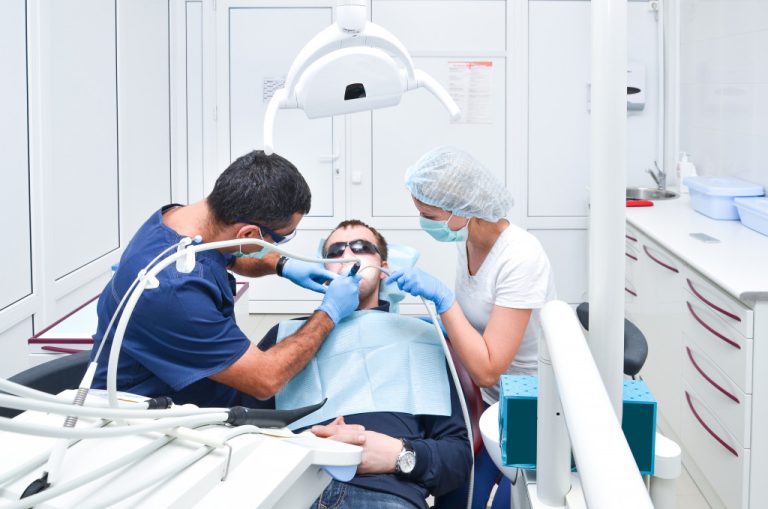Eating is a complex process that can be interfered with by various factors. While some interference is unavoidable, there are treatments available for most conditions. This article will explore the different conditions that can interfere with eating and the treatments available for each situation.
Teeth and Mouth Problems
Teeth are an essential part of the ability to eat. You use your teeth to chew food, and problems with teeth can make it difficult or even impossible to eat properly. Several teeth problems can interfere with eating, and each requires a different treatment.
Tooth Decay
One common problem is tooth decay. This happens when the enamel on the teeth starts to break down, and it can eventually lead to cavities and sensitive teeth. In severe cases, tooth decay can lead to an abscess, a pus-filled pocket that forms around the tooth. If left untreated, an abscess can cause the tooth to fall out.
Tooth decay can be treated with fillings, which help restore the tooth’s structure and prevent further deterioration. If the damage cannot be fixed by fillings, a dentist may recommend a dental crown, a false tooth placed over the damaged tooth.
A crown can be made from various materials, including porcelain, ceramic, or metal. Crowns are often used to protect a damaged tooth from further wear and tear. They also stop the pain from cracked teeth and can help to improve the function of the mouth.
Gum Disease
Another problem that can interfere with eating is gum disease. This happens when the gums become inflamed and pull away from the teeth. Gum disease can be treated with antibiotics and regular brushing and flossing.
In worse cases, a dentist may recommend scaling and root planing, which involves cleaning under the gums and smoothing out the roots of the teeth. In severe cases, surgery may be necessary to remove the diseased tissue.
Temporomandibular Joint Disorder
Finally, there is TMJ, which stands for temporomandibular joint disorder. This disorder causes the joint that connects the lower jaw to the skull to inflame, making it difficult to open and close the mouth.
For TMJ, a dentist may recommend splint therapy, which involves wearing a mouth guard at night to keep the jaw in place.
If you have a problem with your teeth or mouth interfering with your ability to eat, talk to your dentist about which treatment option is appropriate

Dysphagia
Dysphagia is a condition that makes it difficult to swallow. It can be caused by a variety of different factors. One common cause is an obstruction in the throat. This can be caused by food getting stuck or growth, such as a tumor.
Dysphagia can also be caused by damage to the muscles or nerves that control swallowing. This type of damage can be caused by a stroke, Parkinson’s disease, or multiple sclerosis.
Treatment for dysphagia depends on the underlying cause. If the problem is an obstruction, a doctor may recommend surgery to remove the block.
If the problem is due to damage to the muscles or nerves, treatment will focus on helping the patient learn to swallow again. This may involve physical therapy, as well as changes to the diet.
Celiac Disease
Celiac disease is a condition where consumption of gluten damages the small intestine. This can make it difficult to absorb nutrients from food, and it can also lead to weight loss, diarrhea, and fatigue.
The only treatment for celiac disease is a gluten-free diet. This means avoiding all foods that contain wheat, rye, or barley. Many gluten-free products are available now, so following a gluten-free diet is easier than ever.
If you think you may have celiac disease, talk to your doctor about getting tested. A simple blood test can usually diagnose the condition.
Anorexia Nervosa
Anorexia nervosa is an eating disorder characterized by self-starvation and an intense fear of gaining weight. People with anorexia often have a distorted view of their bodies. They may see themselves as overweight even when they are severely underweight.
Anorexia nervosa is a severe condition that can lead to death if not treated. Treatment typically involves a combination of psychotherapy and medication. In extreme cases, hospitalization may be necessary to ensure that the person gets the nutrition they need.
Suppose you or someone you know has anorexia nervosa. In that case, it is important to seek help from a qualified professional as soon as possible.
Help is Available
Various conditions can interfere with eating, and each one requires its own specific treatment. If you have trouble swallowing, have dental and mouth problems, or suffer from celiac disease or anorexia nervosa, there is help available. Talk to your doctor about the best treatment option for you, and get started on the road to recovery.

